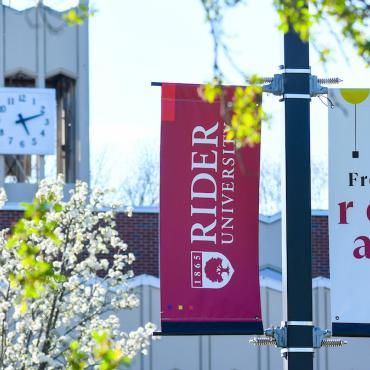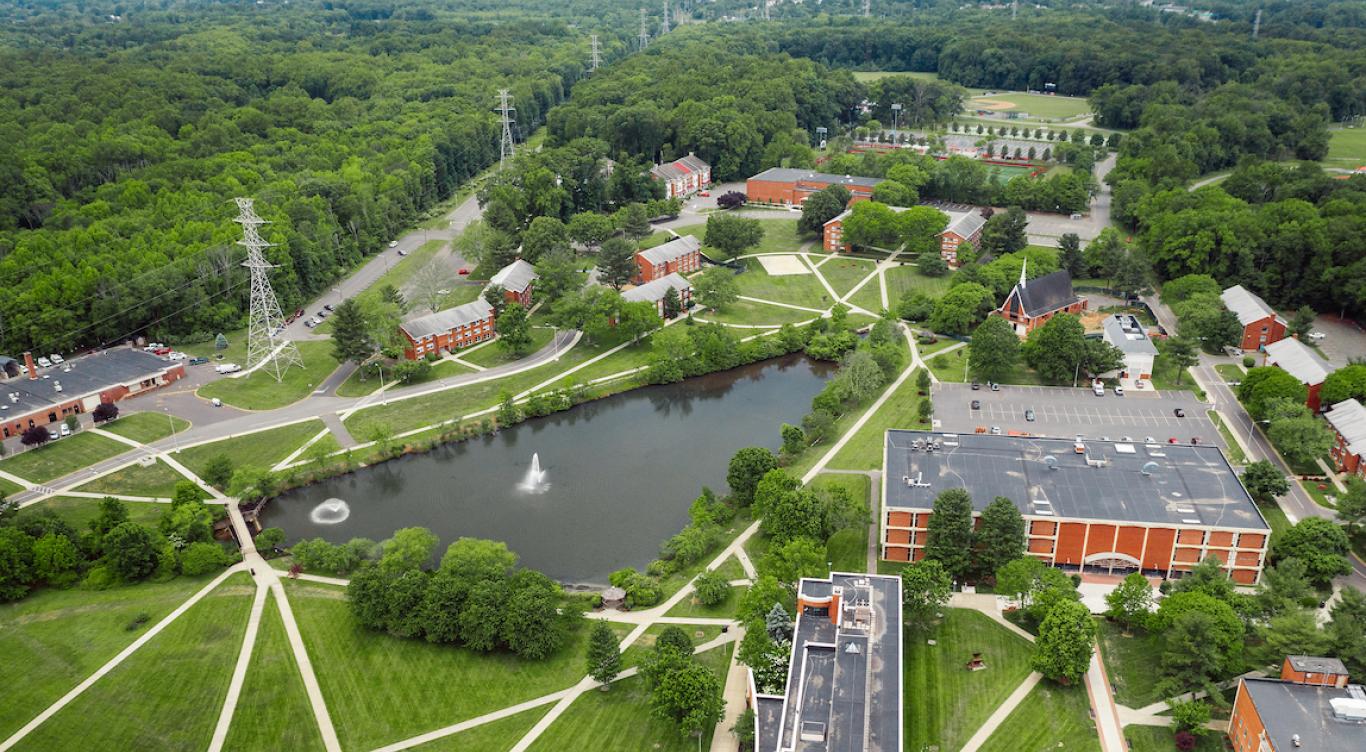Wednesday, Mar 20, 2024
Strategies to help you develop enriching professional relationships.
Networking is powerful. While in college, the connections you make can be just as important to your future success as the knowledge you acquire in the classroom. Through networks, you can seek career guidance, get connected information and resources, gain industry experience and land opportunities. Several reports show that nearly 80% of jobs are filled through personal and professional connections.
At a basic level, we all understand the importance of networking, but for many of us, the concept of building a robust network and properly maintaining it may seem overwhelming. These efforts can be especially daunting to adult learners who juggle various responsibilities on top of their education. While broadening your network does take some strategy, it does not have to be stressful, and you may already be ahead of the curve with your existing connections.
If you’re looking to learn more about how to navigate networking, the career experts in Rider’s Career Development and Success Center (CDS) office can support you.
In this article, our experts, Karl Craft, associate director of the CDS, and Chris Young, employer relations coordinator in the College of Arts and Sciences, will share practical networking tips and information about the ways we support our students to make informed career decisions and prepare for their future.
How to network in college
1. Establish your career and networking goals
In any arena, to get the outcomes you want, creating a plan is key. With networking, it’s especially important to know what you hope to achieve by making certain connections. But how can Rider help you get started with identifying these goals? Our career experts, Craft and Young share how:
Rider offers tons of support and opportunities for students and alumni to engage with their current and prospective industries. Our career coaching team works with current students and alumni to build successful resumes, interview skills and strategies to network and find the right opportunities.
To help students determine their networking and career goals, the experts say internships are key, not only for resume building and career development but to give students real insights that will help map out future choices.
A student studying human resources might work within employee relations functions in an internship, but learn that they’d rather support recruitment, or training and development moving forward. It's also important to understand what opportunities exist in each industry.
Coursework and general knowledge might only skim the surface, so communicating with the network and researching will help identify lesser-known job titles and opportunities.
2. Build an online presence
In some instances, your virtual presence is a person’s first introduction to you. This means it’s just as important to make a good impression online as it is in person. Our experts note that while networking sites like LinkedIn may appear to be just another social media platform, it is an effective tool that should strictly be used to share professional content:
A LinkedIn profile is a great branding opportunity. It's great to start with a headline that is succinct, creative and has searchable terms so others can find you easily. From there, it’s important to build your profile with experiences that demonstrate who you are and your accomplishments.
Once you’ve branded, it's really important to be strategic with your connections. While it's key to add those you know from school, work and your community, as shared connections can help bring new work relationships, you can easily expand into your intended industry focusing on alumni.
To get started with this, we recommend that students use the search feature with keywords around their career goals and select people, filtered by Rider. This will give you access to alumni in your industry, who typically enjoy their experiences with a current Rider student or recent alumni.
3. Create an elevator pitch
An elevator pitch is essentially a 30-second commercial all about you, and if done right, it can make a life-changing first impression. According to Craft and Young, here are key elements to take into consideration when writing your elevator pitch:
When crafting an elevator pitch, you want to be personable and grab your audience's attention. It should say who you are, what you are interested in, why you are qualified and how their help could benefit you. Beyond the pitch aspect, students should also be ready for the conversation that follows, such as what details you can dive into about a past internship and an understanding of that audience's experience.
How does Rider support students to create a winning personal message?
Within CDS, we have career coaches within each college who work with students on crafting resumes, cover letters, interview preparation, networking, LinkedIn profile development and more, all in a one-on-one setting.
Oftentimes, faculty members will invite our career coaches into class sessions to work on developing these skills in a group setting. You never know when you will need to utilize your elevator pitch, so it is best to be proactive and prepared when entering any CDS event on campus.
4. Attend relevant industry or networking events
From career fairs to industry nights with panels and networking, Rider’s CDS office drives conversations around real-world working experiences while helping students connect and reach successful opportunities themselves. The experts share this advice:
Beyond their external network, networking starts internally on campus. If they are unsure of a company that might be a good fit, talk with the CDS team or your faculty advisor. Or, if you’re looking to meet additional companies in your industry, consider joining a student organization around your focus.
Also, students can find many events on campus and in the local community where they can network, both with employers and industry groups, and learn through experiences as early as their first year. More importantly, they can work one-on-one with their career coaches to strategize success.
While at any career-related event, it is important to consider introducing yourself to someone you have an interest in adding to your network. While this might put you outside of your comfort zone, the more you introduce yourself to new contacts, the more confidence you will build.
5. Make good use of your connections, old and new
Most adult students don’t take into account how their extensive life experience, workplace skills and knowledge and existing contacts can benefit them while on the path to earning a bachelor’s degree. Our experts share this about maintaining existing connections:
Treating every connection, whether it be with friends, family, professors, classmates, or colleagues, with respect and recognizing that you never know where or when a career opportunity could present itself.
Taking into consideration that many non-traditional students work full-time and handle other responsibilities that keep them from being more active on campus, this is how Rider helps not only adult learners, but all students, navigate building new connections:
Within CDS, we try to vary the days and times that our events are offered, to provide as many individuals with the opportunity to attend at least one event per semester. It is important to note that our event offerings are open to all students and alumni, regardless of major. Attending an event that is not specifically for your major focus allows you to learn about other industries and expand your network.
Plus, Rider offers countless events for students weekly that provide touch points with faculty, staff and their peers, so try to stay as active as possible. Keep an eye on Rider’s event calendar for opportunities to meet alumni, guest speakers and recruiters on campus.
6. Stay in touch
Now that you have an idea of how to build a network, how can you sustain these relationships and make them work for you? According to the experts, one of the ways students can simply, but effectively, keep their networks engaged is by using LinkedIn:
LinkedIn is an excellent platform to highlight career and life updates that could impact you professionally. Here are a few examples of updates to share:
- Finished a major project? Showcase it on Linkedin, thanking those individuals that you collaborated with.
- Attend a career or networking event on campus? Highlight the event with a LinkedIn post and connect with the industry guests you networked with.
- Have you started a new job or internship? Share the good news via Linkedin.
- Are you planning on moving across the country and looking for new opportunities? Post on LinkedIn and see if any of your contacts can connect you with someone within their network near your new locality.
Find your network and earn your degree at Rider
At Rider, we help you build lasting connections with people who want to see you succeed. We believe that networking not only enhances your career prospects but creates a personal support system that will help you while you’re earning your bachelor’s degree and beyond. Through our various academic, career, financial and social resources, our community will keep you encouraged and supported along the way.

Take the next step
Connect with our continuing education admissions counselors to learn more about how to apply, academic programs, financial aid options for adult learners and other information.

